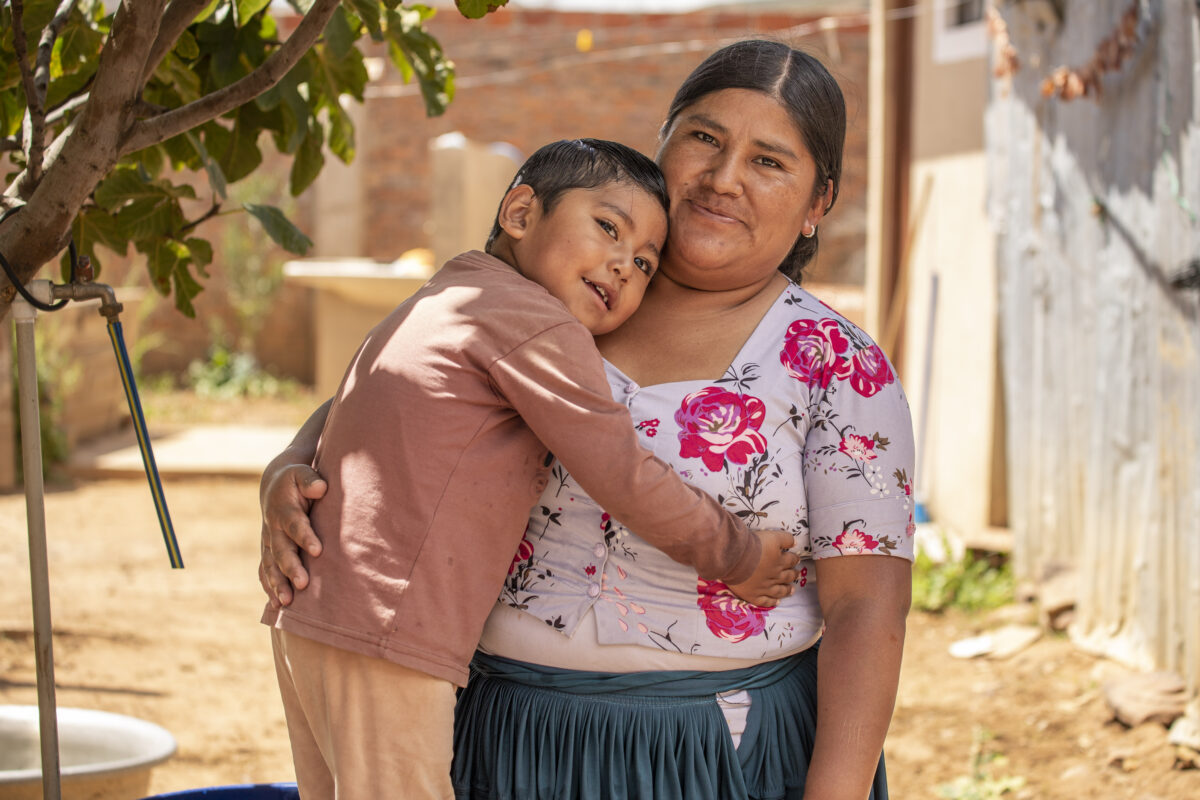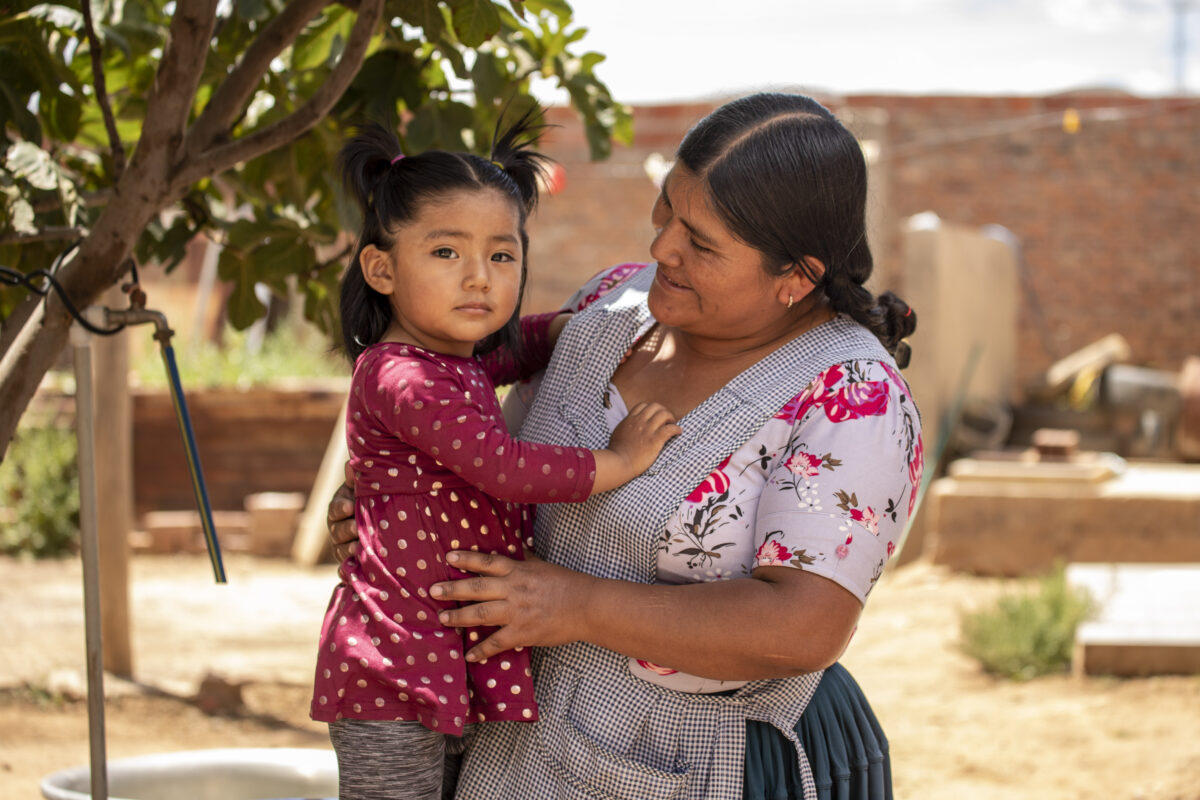Inés was the first girl in her community to attend school. But it only lasted a few weeks.
Growing up in rural Bolivia, Inés experienced the tension between her dreams for the future and the stark reality around her. "I had to get up at 4 in the morning to go collect water. We stored as much as possible in the winter to avoid freezing outside. And because we didn’t have toilets, we would walk to look for remote places in the mountains and hills."
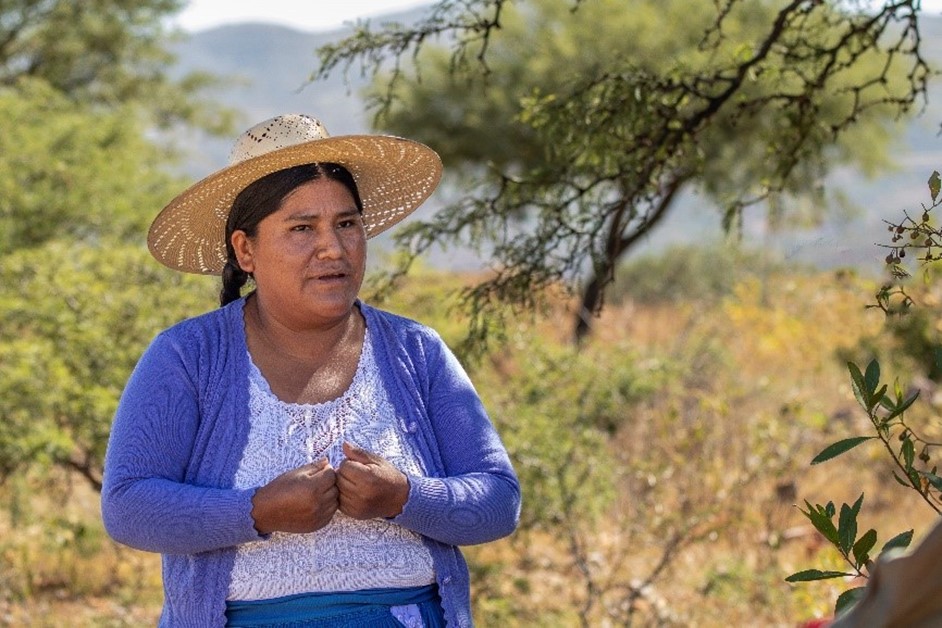
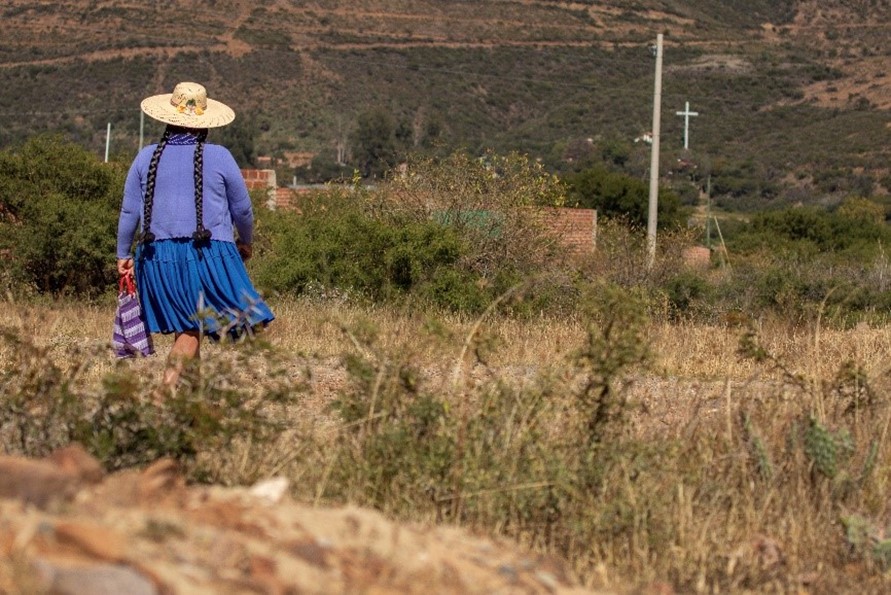
Inés was passionate about education and wanted to enroll in school. After the early morning walks for her family’s water supply, she continued the long journey, alone, to the classroom.
However, as a young woman, Inés faced discrimination from classmates and unsafe situations during her solitary walks. And without bathrooms at school, she felt uncomfortable among her peers. Inés stopped going to school.
After her family moved to Arbieto – a municipality in Bolivia where Water For People works – Inés tried attending school again. But having grown up speaking the Indigenous Quechua language, she could barely follow the lessons in Spanish. Besides facing discrimination in class, life was still difficult at home.
While she was no longer walking as far to collect water, it was expensive and a scarce resource. "We had to limit our water use since it needed to last the whole month—we reused as much as possible. We bathed with our clothes on to wash them too, all to conserve," Inés shares.
Unfortunately, Inés’s experience isn’t an anomaly. It isn’t even rare.
Globally, women and girls are responsible for water collection in 7 out of 10 households without water on site.
Lacking safe water access and dignified bathrooms impacts every aspect of a young woman’s life – from education to physical safety, health to economic opportunities.
Water For People works with the municipality of Arbieto, a rural area with dispersed settlements that make reaching people with water and sanitation services challenging and expensive – for example, piping water long distances from reservoirs to homes.
Inés was part of making one of these water systems happen. Recognizing her passion for learning and natural leadership, her neighbors elected her to be president of the local Water Committee, where she coordinated with Water For People and the community to install a piped water system.
Now, more than 50 families in Arbieto have access to improved water service.
For Inés, the day the water tap was turned on in her home was a day of absolute happiness. "I had never had a sink – it was something new!"
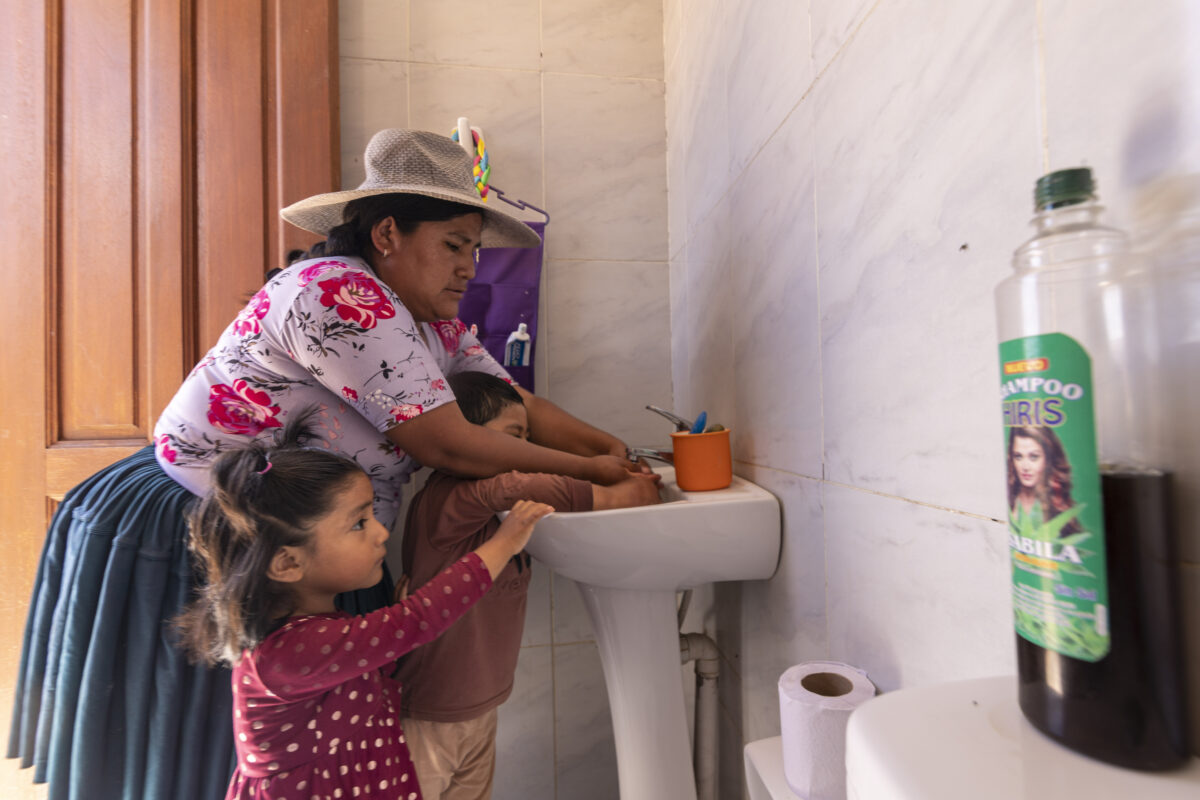
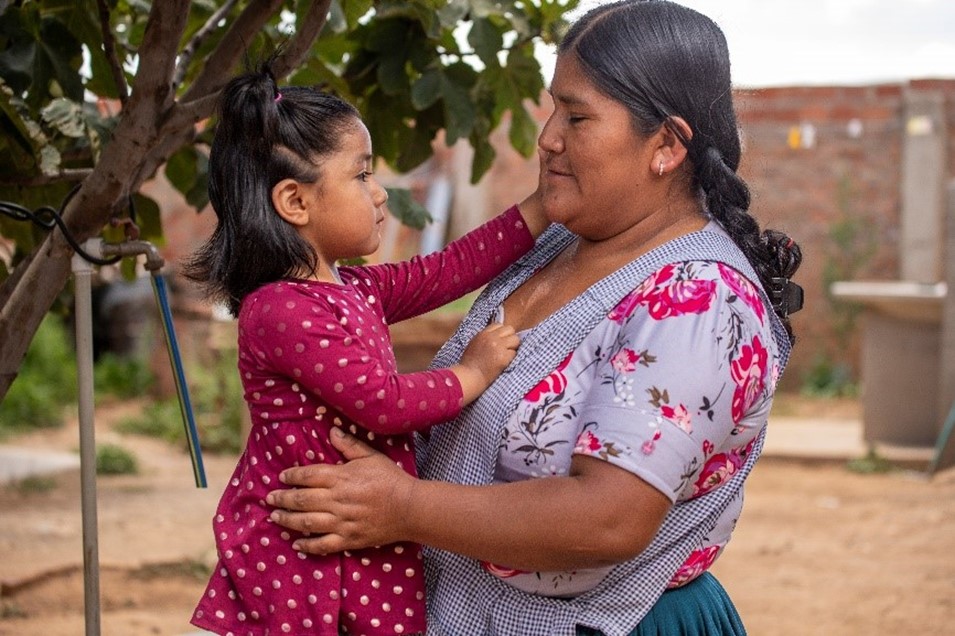
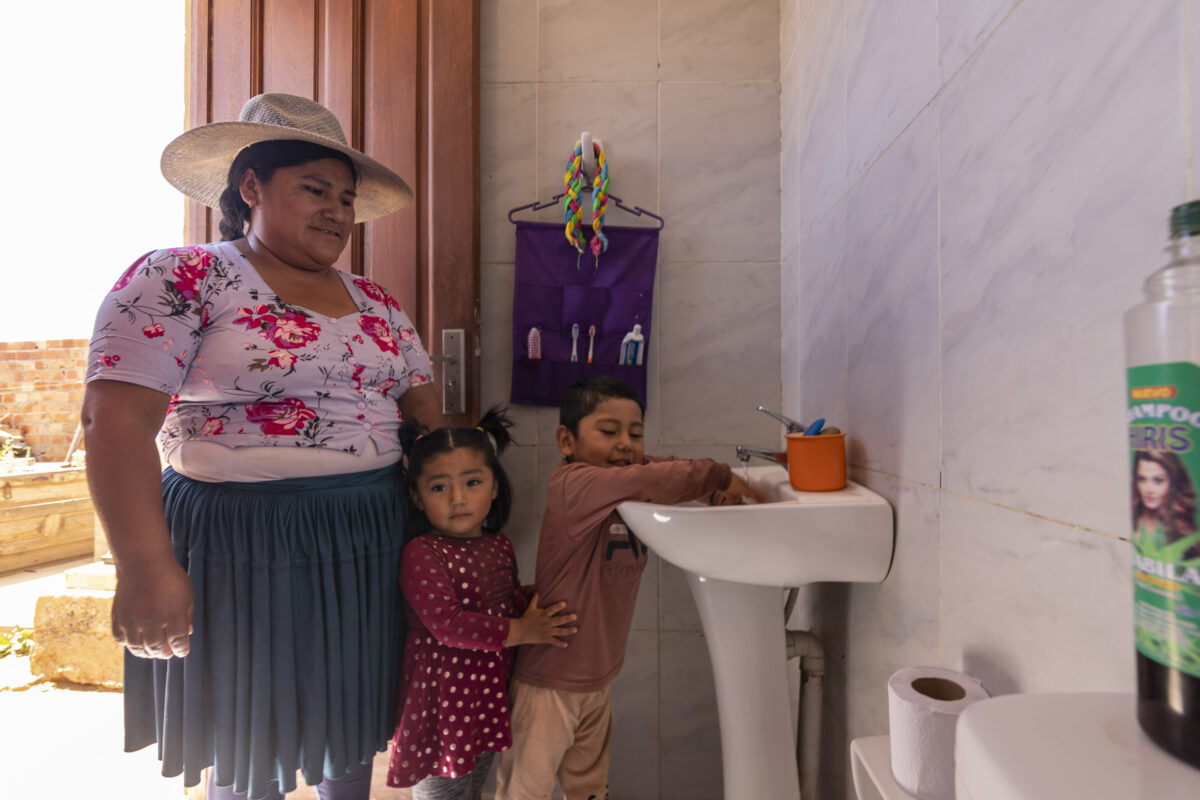
But according to Water For People’s monitoring, 32% of households in Arbieto still have no improved water system. This means other families face difficulties from a lack of water access at home.
"If you do not have water, you cannot live – human beings, animals, or plants," Inés tells us.
Inés may not have been able to pursue her education, but she believes that the next generation can pursue their dreams – aided by reliable water access and bathrooms in their communities.
